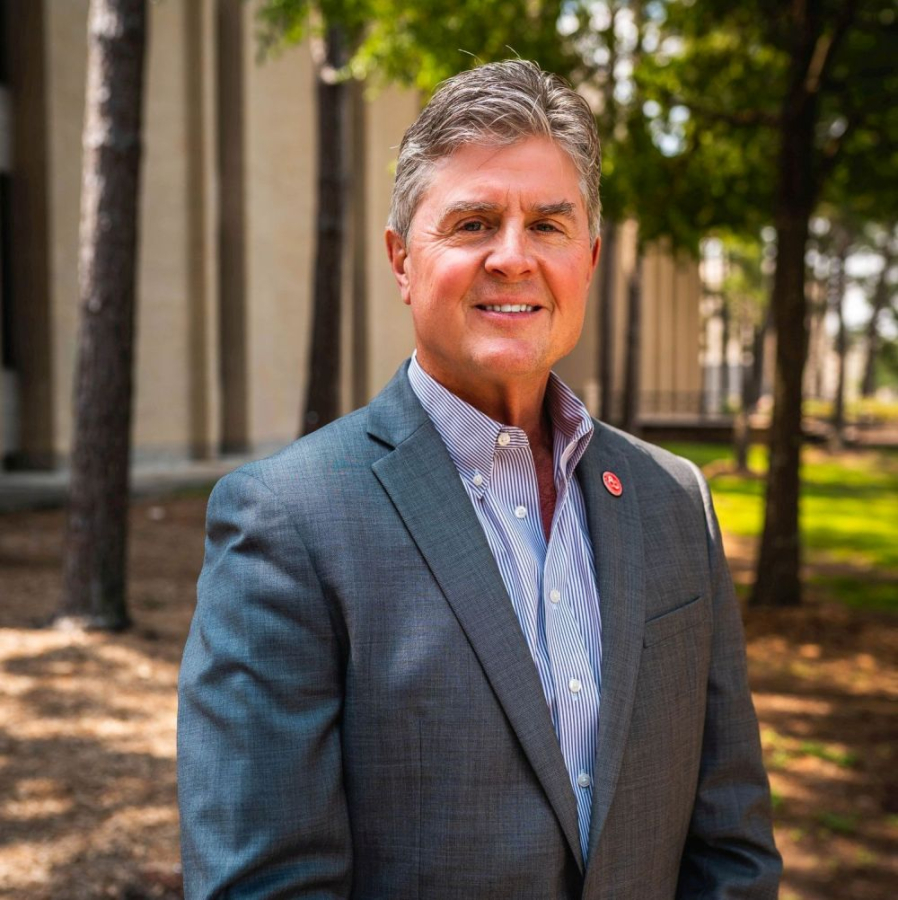While there is a push for renewable energy sources, the world's growing energy consumption means that generation from fossil fuels will still be required for decades. However, even if that's the case, Cullen College of Engineering alumni Terrance “Terri” Ivers (BSME '80) still sees an opportunity for that process to be done in a way that is more environmentally conscious and responsibly manages our critical energy resources.
“I think all engineers are curious, and they should be, and we should set goals to improve what has been done previously,” Ivers said. “What we saw was a great opportunity to enhance ultra-deepwater appraisal and production in the Gulf of Mexico in particular, but also globally. And yet, we saw the industry going down a path that was heavily reliant on unproven subsea production systems for the deepest and riskiest oil plays in the high temperature, high pressure (HPHT) formations beneath the Gulf of Mexico.”
Ivers is the founding chairman of Frontier Deepwater Appraisal Solutions, LLC. The company is in the startup phase with a small but highly experienced core team. Ivers himself has extensive experience in the energy and construction industries. He is the former executive president of the North American unit of Germany’s Bilfinger, an international construction and maintenance company with more than $4 billion in yearly revenue.
Ivers noted that, because many ultra-deepwater subsea drilling and completion methods are reliant on complex systems that are extremely expensive to deploy and maintain, production efforts have suffered financially on the most challenging HPHT oil fields.
“We set about to tackle that particular challenge to economic performance, recognizing the need to eliminate inherent risks in terms of safety and environment associated with industry’s reliance on a new generation of unproven equipment for these very deep reservoirs,” he said. “We felt that there was a solution that involved more environmentally friendly and safer production techniques. Could we solve that challenge by enabling adoption of proven surface well systems supported on the movable wellbay concept that we designed?”
Wellbays can provide direct surface access to wells and accompanying equipment on drilling/production platforms for safer, more efficient operations. Ivers saw the opportunity for patents and new technology to enable this highly desirable direct access to wells and completion/control systems in ultra-deep waters with a straightforward innovation to the way the wellheads are supported in the wellbay.
“We came up with this concept of a movable wellbay, which enabled us to position each wellhead centrally (beneath the derrick) for critical operations as/when needed,” he said.
Ivers added that he fully supports renewable energy efforts, but he acknowledges that there needs to be a transition period, given how much of modern life revolves around access to fossil fuels.
“We believe and support following a path to alternate means of producing energy,” he said. “But there's no practical way to get to that concept fully without managing a gradual weaning off fossil fuels. Just shutting off their production doesn't get us to the energy transition. I mean, much of the equipment that is used to produce alternate forms of energy, like solar panels and all the components that go with it, or even with turbines and the blades, they're all using petroleum products. Just like most industrial processes, they depend on fossil fuels in the manufacture of the key components.”
To bridge the gap while energy storage, alternative materials, and renewable energy methods are further developed, Ivers said that fossil fuels will continue to be utilized.
“Fossil fuels are going to play a role,” he said. “Our most abundant reservoirs of oil exist deep offshore. They exist in deepwater plays. We must find a way to shepherd our reserves to maintain our capability to produce at the level needed to sustain our country. We need to continue to find these reserves and, and we should all be working in a way that challenges the status quo and opens up our minds to new ways of doing so.”
“The remarkable thing about Frontier’s innovation is that it's not the most technologically advanced concept that exists out there. It's an insightful evolution of what's already existed in the industry but has just been overlooked. We believe that helps industry to accept and deploy the technology, because basically it is so familiar.”
